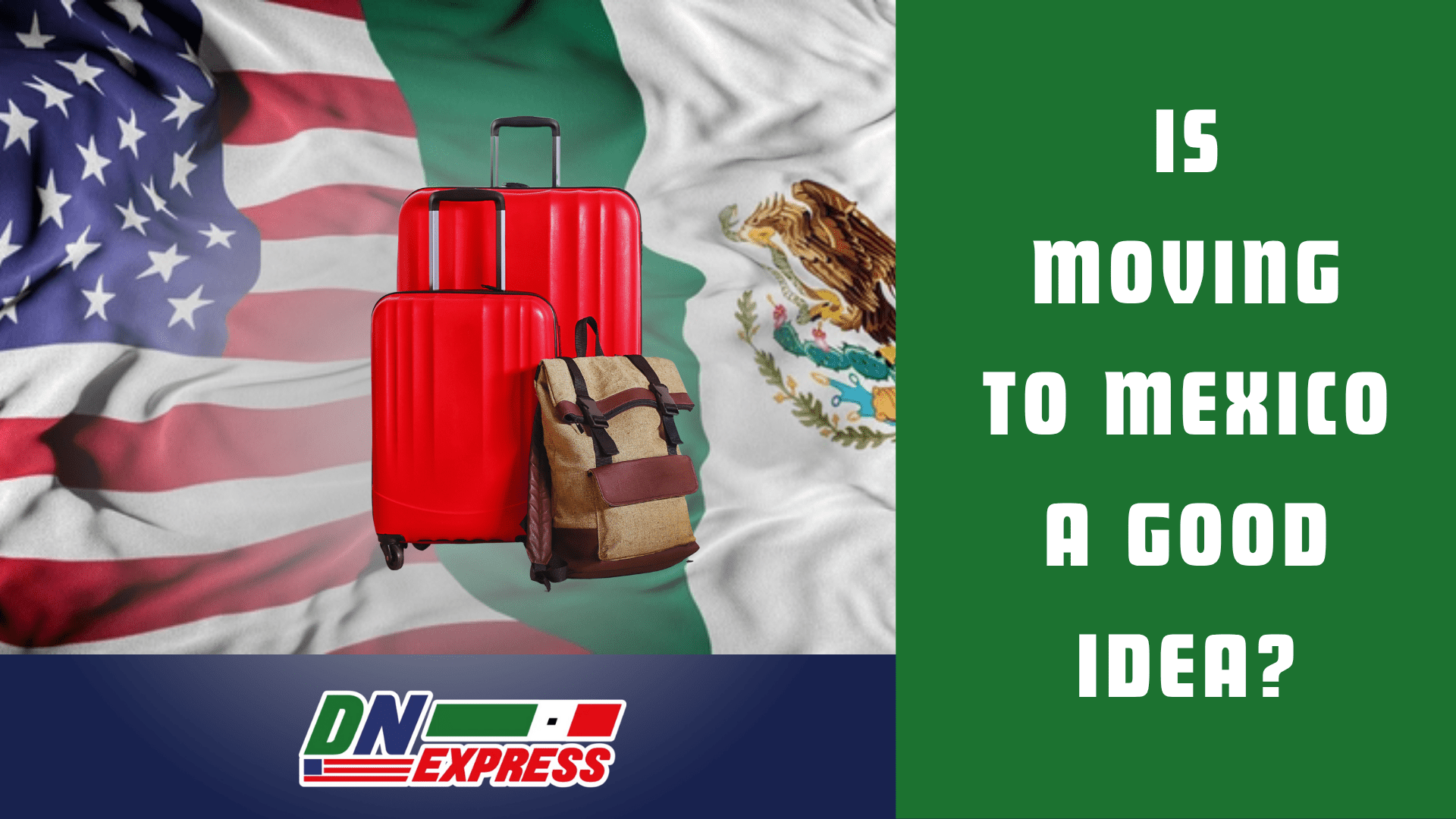
Moving to Mexico is a good idea for many Americans, especially those with Mexican heritage, thanks to lower living costs, vibrant culture, quality healthcare, and accessible dual citizenship options.
Whether you're looking for a better quality of life, legal alternatives to the consulate, or a way to reconnect with your roots, the right strategy can make it both doable and rewarding.
In fact, many of our clients have turned what felt like an impossible dream into a legal reality without ever stepping foot in a consulate.
We specialize in helping U.S.-born Mexicans, families, and dual citizens reclaim their Mexican identity without the stress. We handle the legal work so you can focus on your future.
Want to know if Mexico is the right move for your situation? Keep reading. We'll walk you through who should consider it, what to expect, and how to get started with confidence.
A Straightforward Answer: Yes, But It Depends on Your Goals
Moving to Mexico can be a great idea if you're seeking affordability, cultural connection, or a change of pace. But your reason matters. Retirees, remote workers, and dual citizens all experience Mexico differently.
For some, it's about escaping the high costs and fast pace of life in the U.S. For others, it's about returning to their roots or securing legal benefits for their children.
And for many, it's simply about accessing a better quality of life. Whether that means fresh fruit from the mercado, stronger family ties, or remote work with mountain views.
But it's not a one-size-fits-all answer. Your goals shape the risks, requirements, and rewards.
That's why we created this guide to help you figure out if moving to Mexico is a smart move for you.
Let's break it down by situation.
Who Should (And Shouldn't) Consider Moving to Mexico?
Not everyone moves to Mexico for the same reason, and not everyone qualifies for the same rights.
Whether you're exploring dual citizenship, looking to retire affordably, or seeking stability for your family, here's how your background shapes your options:
U.S.-Born Adults With Mexican Parents
If one or both of your parents are Mexican citizens, you may already have the right to Mexican nationality, even if you were born and raised in the U.S.
Claiming it opens the door to property rights, healthcare access, and easier long-term residency.
We work with people every day who thought they “missed their chance,” only to discover it's still fully possible.
Parents Applying for Their U.S.-Born Children
Many of our clients are Mexican citizens living in the U.S. who want their American-born kids to hold Mexican nationality.
It's a powerful gift, giving your child future rights for schooling, travel, inheritance, and the ability to move freely between both countries.
People Denied by the Mexican Consulate
Maybe you tried applying for citizenship or correcting a birth certificate, only to be told your documents were wrong or that “nothing could be done.”
The truth? Many of these cases can be resolved legally without visiting the consulate.
We specialize in helping clients correct identity errors from the U.S.
Mexican Citizens Reclaiming Identity Later in Life
You might be in your 30s, 50s, or 70s, and only now learning that you qualify for Mexican nationality through your parents or grandparents.
It's never too late.
Whether you're returning to your roots or planning for retirement abroad, reclaiming your citizenship can give you a sense of wholeness and open new legal options.
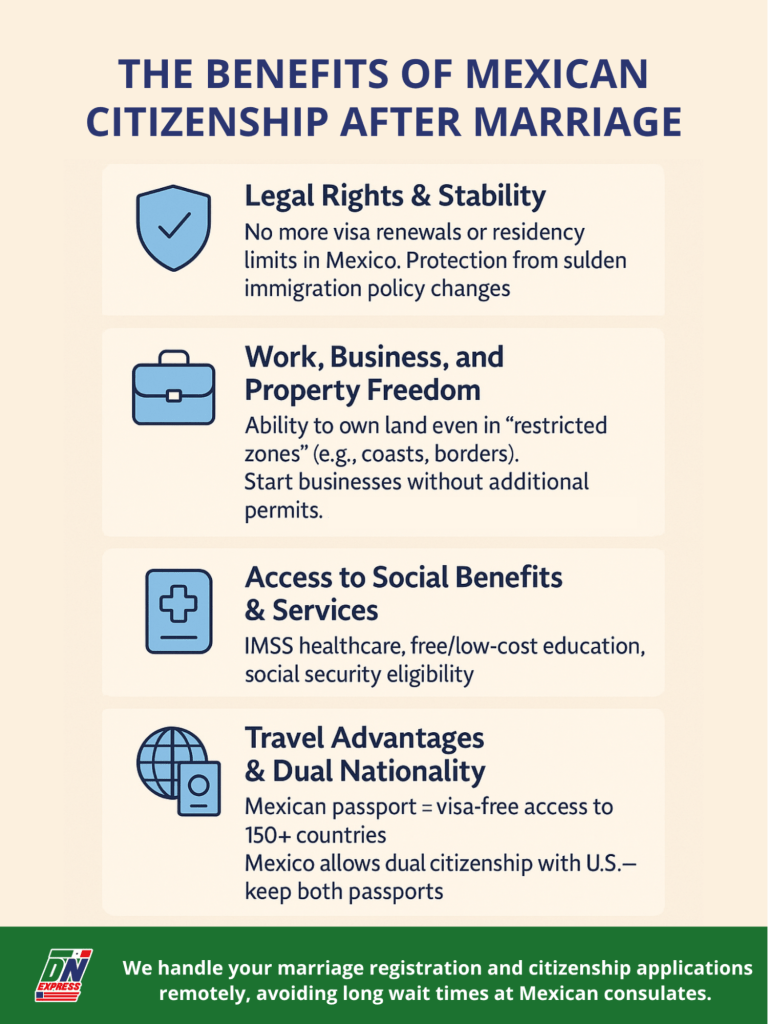
Mixed-Status Families Seeking Citizenship for Everyone
We often serve entire families applying together; U.S.-born children, undocumented parents, or adult children with different statuses.
When everyone has legal footing in Mexico, it creates a path for inheritance, property ownership, healthcare access, and future flexibility.
Who might not benefit?
If you're looking to move without any legal ties to Mexico and don't qualify for a visa or dual citizenship, the process becomes complex but not impossible.
You'll need to consider temporary residency, meet income thresholds, and possibly face stricter rules. We'll cover that next.
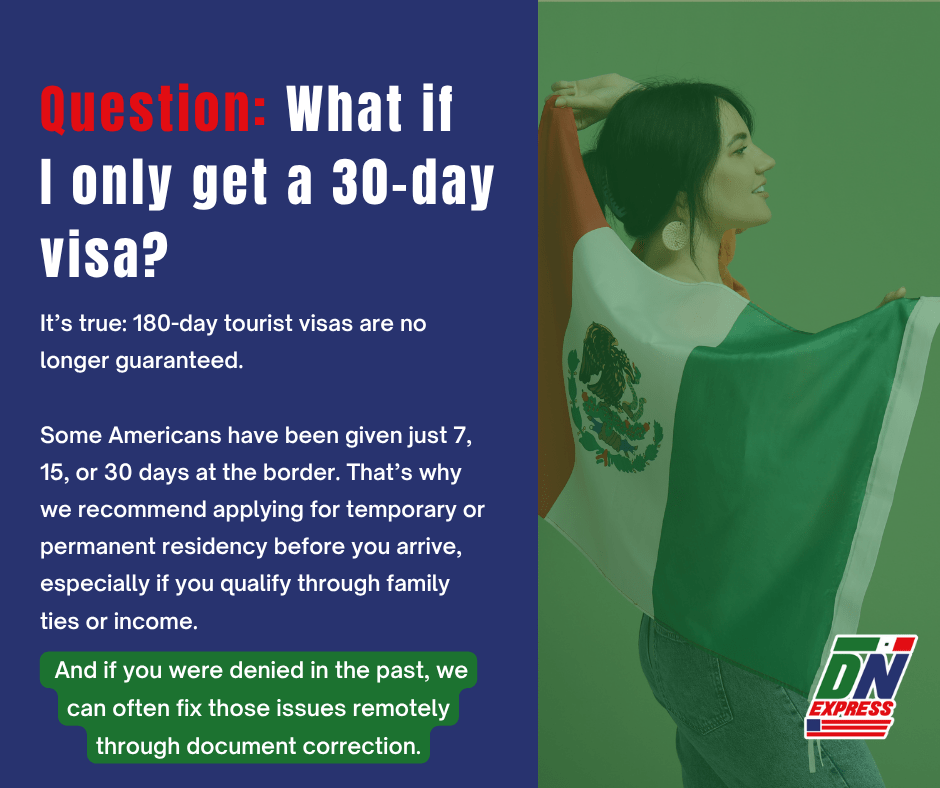
Pros of Moving to Mexico (That Go Beyond Blog Clichés)
If you've been researching this topic online, you've probably already seen the basics: “lower cost of living,” “great food,” “beautiful beaches.”
All true, but here's what most blogs don't tell you about what it's really like to live in Mexico as an American with legal ties or dual citizenship.
Live Well on $2,000/Month (Sometimes Less)
From Guadalajara to Mérida, many expats report living comfortably on $1,800–$2,500/month; including rent, groceries, healthcare, and transportation.
Inland towns tend to be affordable compared to coastal resort areas.
If you're used to U.S. costs, this can feel like an instant raise.
Dual Citizenship Means Legal Rights (and Fewer Headaches)
If you qualify for dual citizenship, you can skip visa renewals, own land outright (even in coastal “restricted zones” via fideicomiso), access public health and education, and avoid the 180-day tourist stamp roulette.
It's not about pride; it's about practical, lifelong legal security.
High-Quality Healthcare That Won't Break the Bank
Mexico's private hospitals often offer world-class care for a fraction of U.S. prices, and you don't need to speak fluent Spanish.
Many doctors are U.S.-trained and speak English.
You can also enroll in public systems like IMSS, or purchase international plans tailored for expats.
Bilingual Schools and Creative Hubs for Families
Many cities offer international or bilingual schools at affordable rates; perfect for families raising dual citizens.
And for creatives or digital nomads, towns like San Cristóbal, Oaxaca, and Mexico City offer fiber internet, art communities, and coworking spaces in walkable, historic neighborhoods.
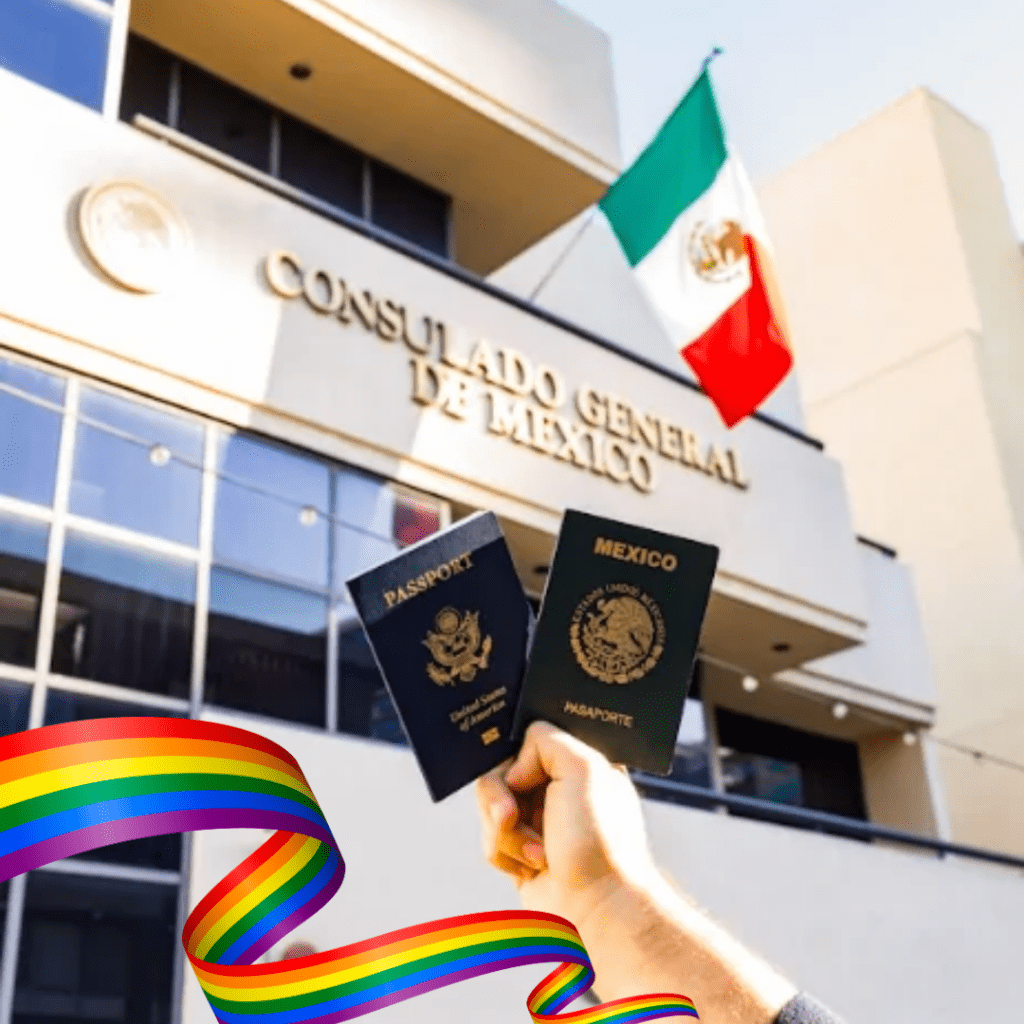
Welcoming Vibes for LGBTQ+ Expats
Cities like CDMX, Oaxaca, and Puerto Vallarta have strong LGBTQ+ communities and legal protections.
Many of our clients choose these areas for the cultural vibrancy, safety, and sense of belonging; especially for solo travelers or couples navigating international moves.
Bottom line?
Mexico isn't “cheap”; it's accessible, especially for those who qualify for nationality.
When you add in cultural richness, generous residency options, and the ability to stay legally and safely long-term, the pros go far beyond what travel blogs can show.
Worries We Hear Often (and What to Do About Them)
It's normal to feel hesitant about a big move, especially one that involves immigration paperwork, legal rules, or cultural unknowns.
We've helped hundreds of clients move past these fears with clarity and real solutions.
Here are some of the most frequent concerns we hear, and how we handle them:
“What if I only get a 30-day visa?”
It's true: 180-day tourist visas are no longer guaranteed.
Some Americans have been given 7, 15, or 30 days at the border.
That's why we recommend applying for temporary or permanent residency before you arrive, especially if you qualify through family ties or income.
And if you were denied in the past, we can often fix those issues remotely through document correction.
“I'm worried my spouse won't qualify.”
Residency isn't always a solo journey, and when one spouse qualifies but the other doesn't, it can get complicated fast.
Our legal team helps couples prove financial dependency, meet the correct income thresholds, and apply together so your family isn't split across borders.
“I don't want to drive across the border.”
You don't have to.
Many of our clients fly in, collect documents remotely, and complete the process legally without ever needing to risk a border crossing.
We coordinate everything from civil registries to apostilles, all from the comfort of your home in the U.S.
“I'm scared to make legal mistakes.”
We get it.
One wrong form, a missing document, or a mistranslation can delay or derail your application.
That's why we handle everything: bilingual legal support, verified paperwork, and step-by-step guidance from licensed Mexican attorneys.
No guessing, no wasted time, no consulate appointments.
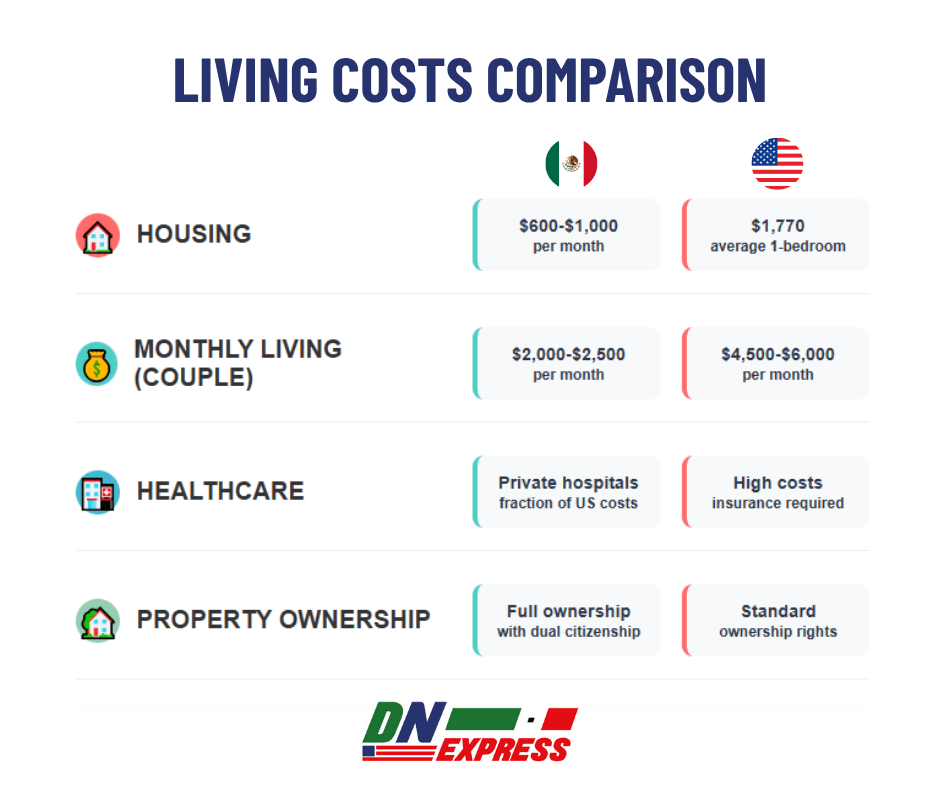
How Long Can a U.S. Citizen Stay in Mexico?
One of the most misunderstood aspects of moving to Mexico is how long you're allowed to stay, and under what conditions.
Whether you're planning a trial run or a full relocation, here's what the law allows:
Tourist Visa: Up to 180 Days, But Not Guaranteed
While the 180-day tourist permit was once routine, it's no longer automatic.
Immigration officials now issue shorter stays based on your travel plans, and it's not uncommon to receive 15, 30, or 60 days.
Relying on this route long-term is risky, especially if you're bringing family or trying to work remotely.
Temporary Residency: 1 Year, Renewable Up to 4 Years
Temporary residency is a great fit for retirees, remote workers, or those with Mexican relatives.
It lets you stay legally for a year at a time, with renewals available for up to four years.
You can rent property, open bank accounts, and even bring your car temporarily.
Permanent Residency: Lifetime Stay, No Renewals
Once you qualify, permanent residency gives you the right to live in Mexico indefinitely; no renewals, no travel limits.
It's often available to parents of Mexican citizens, retirees with sufficient income, or those who've held temporary residency for several years.
Dual Citizenship: Unlimited Stay, Full Legal Rights
If you're eligible through your parents or ancestry, becoming a Mexican citizen grants you the strongest legal status.
You can vote, own property without restrictions, access public benefits, and stay in the country as long as you want.
No paperwork required after naturalization.
The takeaway?
Your length of stay depends on your legal status, and relying on a tourist visa isn't a sustainable plan.
We help clients secure the right option based on their goals, background, and family structure.

Why So Many Americans Are Moving to Mexico
In recent years, we've seen a quiet but powerful wave: Americans, especially those with Mexican roots, choosing to build a new life across the border.
But this trend isn't about escaping problems in the U.S.
It's about rediscovering what makes life feel balanced, affordable, and meaningful.
Escape from High Costs of U.S. Cities
From New York to Los Angeles, rising rents, healthcare bills, and basic expenses have pushed many middle-class families to consider alternatives.
In Mexico, you can live on a fraction of your U.S. income without sacrificing comfort or safety, especially in inland towns or smaller cities.
Easier Path to Citizenship via Heritage
If you're of Mexican descent, reclaiming your nationality is often straightforward compared to immigrating anywhere else.
Many of our clients didn't even realize they qualified until they worked with us to correct paperwork and apply from the U.S. without visiting a consulate.
Vibrant, Diverse Communities
Cities like Los Angeles, Houston, and Chicago are already home to rich Mexican-American communities, and many families have relatives still living in Mexico.
Moving south can strengthen family ties, open cultural doors, and allow kids to grow up bilingual and bicultural.
Work-Life Balance and Slower Pace
One of the biggest reasons people give for moving to Mexico? Peace.
The daily pace is slower. People prioritize family, food, and festivals.
It's a chance to trade burnout for balance, without giving up connectivity, services, or opportunities.
Remote Work and Early Retirement Options
With remote work now mainstream, many U.S. professionals can keep their jobs while living in Mexico.
Others use dual citizenship to retire earlier, knowing their Social Security or savings stretch much further in Mexico, with affordable healthcare and welcoming neighborhoods to match.
In short?
Americans are returning to something deeply human: affordability, belonging, and a sense of home.
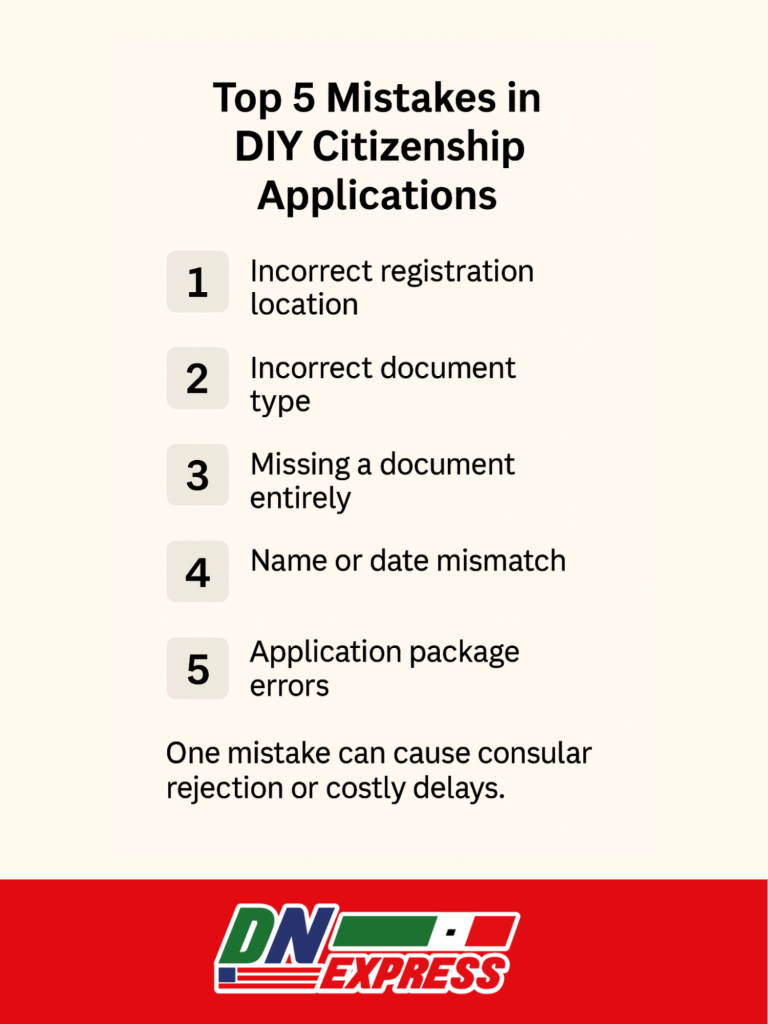
Want to Avoid the Consulate? We Can Help
Trying to go through the Mexican consulate can feel like trying to win a lottery. Every office has different rules, wait times stretch for months, and one small error can lead to instant rejection.
But it doesn't have to be that way.
We've built a system that bypasses the consulate entirely.
Our binational legal team helps U.S. citizens of Mexican descent reclaim their identity, correct documents, and apply for citizenship, all from the comfort of their home.
Here's how we make it simple:
- No consulate visit required. Everything is handled remotely; no travel, no waiting rooms.
- All work handled by licensed Mexican attorneys. You'll work with actual professionals, not translators or document preparers.
- Documents are secure, never shared with third parties. Your identity and paperwork are protected with strict legal protocols.
- Affordable pricing, payment plans, and free case review. We offer flexible options because legal recognition shouldn't be out of reach.
- Great for individuals, couples, and whole families. Whether you're reclaiming your own identity or applying for your children, we've got you.
Talk to a person in 15 minutes via call or WhatsApp. No automated replies; honest answers, fast.
Schedule a Free Case Review Call or Message Us on WhatsApp
If you've been told it's too late or too complicated, let us prove otherwise.
Reclaiming your Mexican citizenship is possible and one conversation away.
FAQ
Before you pack your bags, you'll want honest answers to the most frequently asked (and most misunderstood) questions about moving to Mexico.
These are the questions we hear from nearly every client, and here's what you need to know:
Is it safe for Americans to move to Mexico?
Yes, but where you move matters.
Tourist zones, expat towns like Ajijic or San Miguel, and interior cities like Guanajuato or Querétaro are generally safe and welcoming.
That said, you should avoid areas with active cartel activity, especially near the northern border.
Like anywhere, do your research and trust local advice.
How much money do you need to live comfortably?
Most couples can live well on $2,000–$2,500/month, especially in inland cities.
That includes rent, groceries, healthcare, and basic expenses.
Even digital nomads or retirees on Social Security find they can stretch their income further, often without sacrificing quality of life.
Can I keep my U.S. job while living in Mexico?
Absolutely.
Many of our clients work remotely for U.S. companies while living in Mexico.
Make sure your location has reliable fiber internet, which is typical in cities like Mexico City, Puebla, and Mérida.
It's also wise to clarify any tax or residency rules with your employer.
What's the downside of living in Mexico?
No place is perfect.
Expect slower bureaucratic systems, occasional power outages, cultural differences (like “Mexican time”), and a language barrier if you don't speak Spanish.
But for many, those are trade-offs worth making in exchange for lifestyle, affordability, and community.
Can Americans buy property in Mexico?
Yes, foreigners can legally own property.
Inland, you can buy in your name. In coastal or border areas (known as “restricted zones”), you'll use a bank trust called a fideicomiso.
It's a safe, legal process we help clients navigate all the time.
Is healthcare free in Mexico?
Not free, but much cheaper than in the U.S.
Many expats use private insurance for short wait times and English-speaking doctors.
You can also enroll in Mexico's public system (IMSS), though expect longer delays.
Still, even out-of-pocket visits and prescriptions are often a fraction of U.S. prices.



